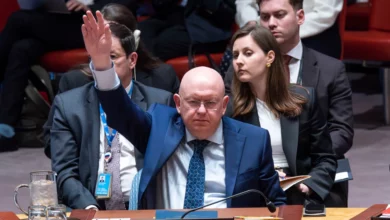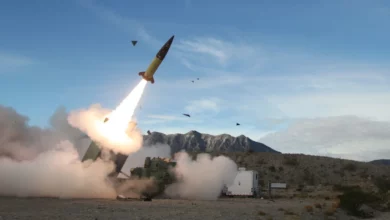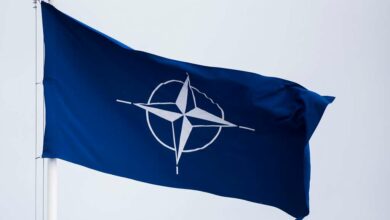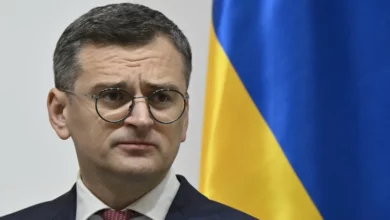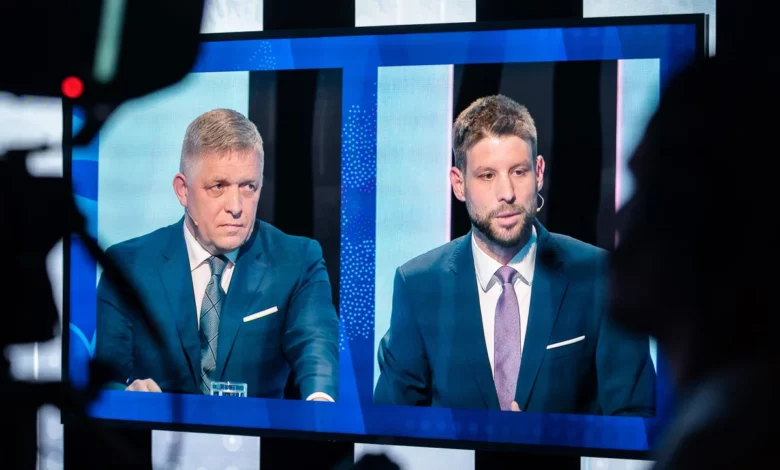
The frontrunner, former Prime Minister Robert Fico, has made no secret of his affinity for the Kremlin during the election campaign. He has criticized the West for supporting Ukraine and adopted a strong anti-US message, even accusing Slovakia’s President Zuzana Čaputová of being an “American agent.” He has said that if elected, he would stop sending weapons to Ukraine and block Ukraine’s NATO ambitions.
Fico’s left-wing populist SMER party has been leading for months, although opinion polls published earlier this week showed SMER neck-and-neck with the Progressive Slovakia (PS) party.
The liberal PS party, led by the EU Parliament Vice-President Michal Šimečka, is pushing for a completely different future for Slovakia – one that includes a continued strong support for Kyiv and strong links with the West.
Experts said that misinformation and Russian propaganda have become prominent during the election campaign, with social media companies criticized for not doing enough to stop it.
“Slovakia has been chosen (by Russia) as the country where there is fertile soil for success of the Russian pro-Kremlin, pro-war narratives,” Věra Jourová, the European Commission’s top digital affairs official, told a news conference Tuesday.
She said the election was a “test case” on the power of social media and misinformation. “The approach to Russian war in Ukraine is a divisive line (in the election),” she said.
Coalition likely
While either of the two parties could end up winning the election, according to the polls, neither is likely to secure a majority that would allow them to form a government on their own.
With as many as nine parties potentially reaching the 5% threshold needed to enter the parliament, coalition negotiations will almost certainly include multiple players and could be long and messy. It is also far from certain that the leader of the biggest party will become the prime minister.
Hlas, a party that was formed as an offshoot of SMER following an internal dispute between Fico loyalists and the-then Prime Minister Peter Pellegrini, was polling third in the last and could turn out to be the kingmaker.
Pellegrini became prime minister in 2018 after Fico resigned following weeks of protests in the wake of the murder of investigative journalist Ján Kuciak and his fiance Martina Kušnírová.
But opinion polls suggest that neither Fico nor Šimečka are likely to have enough seats to form a government with just Hlas and will have to bring in more coalition parties.
Fico has also not ruled out working with Republika, an extremist far-right party which claims that the war in Ukraine is a consequence of NATO’s “expansion toward Russia” and Kyiv’s “aggression towards the Russian minority in eastern Ukraine.”
PS, meanwhile, is most likely to court the Christian democratic KDH party, the liberal Freedom and Solidarity Party or a coalition grouping formed around the center-right Ordinary People and Independent Personalities (OLaNO) party. OLaNO won the last election in 2020, but its government collapsed following a series of scandals and infighting.
PS said in its manifesto that Ukraine deserves all the “humanitarian, financial, diplomatic and military help it needs to succeed against the Russian aggression.”
‘Not another round of ammunition’ for Ukraine
Fico is a proven vote winner, a populist with a strong voter base. He has won parliamentary elections three times in the past, including in 2012 when he secured an absolute majority – the first and only time any party has managed that since the 1989 revolution.
His potential return to power could have serious consequences for the region. Slovakia is a member of both NATO and the European Union and has been one of Kyiv’s staunchest allies. It was among the handful of European countries pushing for tough EU sanctions against Russia and has donated a large amount of military equipment to Ukraine.
But this would likely change under Fico, who has blamed “Ukrainian Nazis and fascists” for provoking Russia’s President Vladimir Putin into launching the invasion, repeating the false narrative Putin has used to justify his invasion.
Fico has called on the Slovak government to stop supplying weapons to Kyiv, and said that if he were to become prime minister, Slovakia would “not send another round of ammunition.” He is also opposed to Ukraine joining NATO.
While in opposition, Fico has also become a close ally of Hungary’s Prime Minister Victor Orban, especially when it comes to criticism of the European Union. If Fico wins, he and Orban could gang up together and create obstacles for Brussels. If Poland’s governing Law and Justice party manages to win a third term in Polish parliamentary elections next month, this bloc of EU troublemakers could become even stronger.

